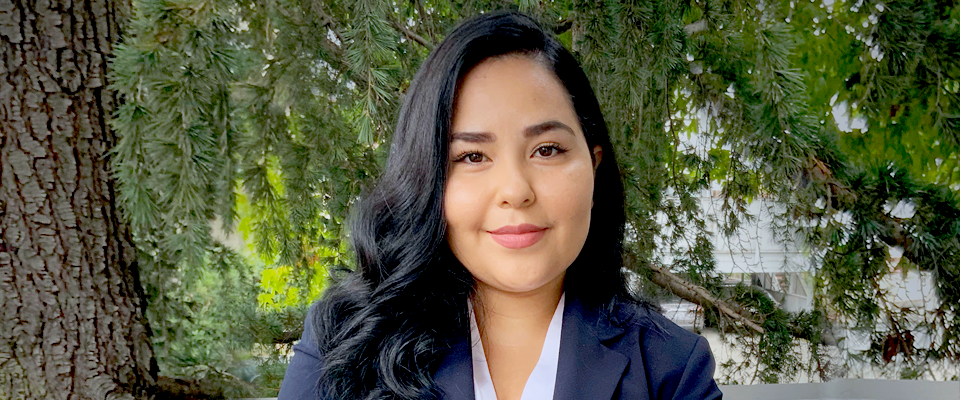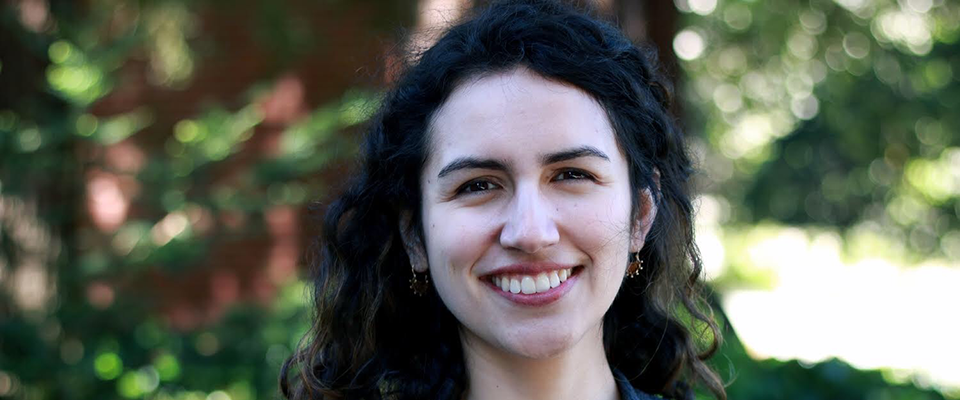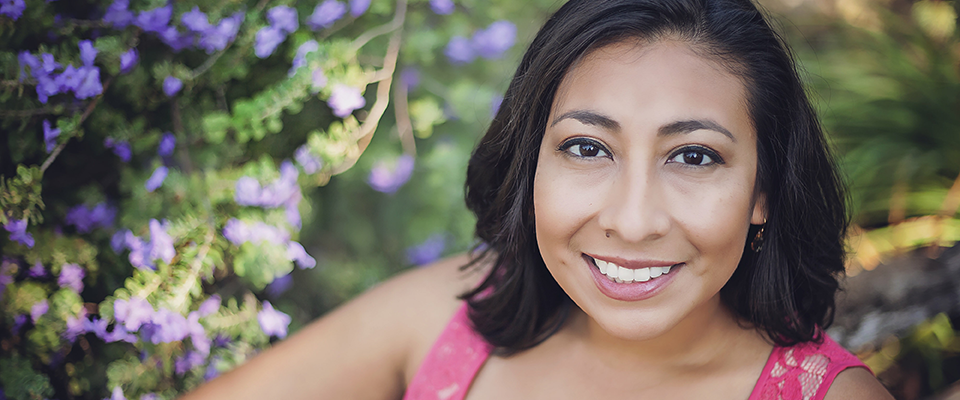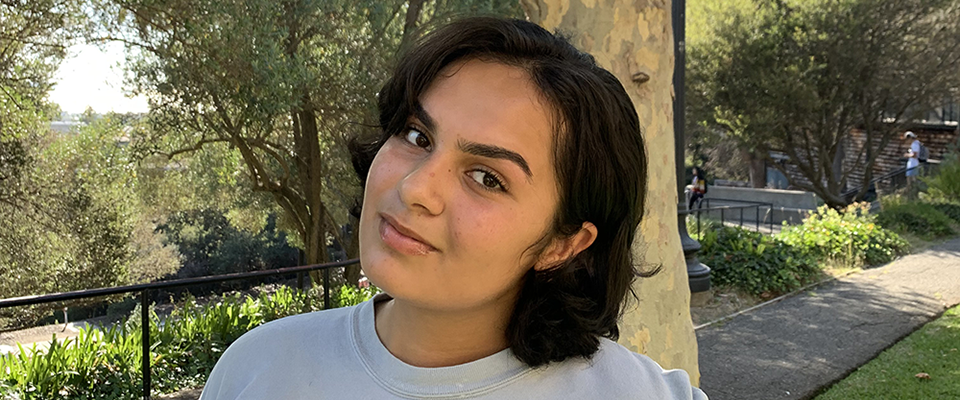Rosa Hernandez ’15 didn’t grow up imagining she would attend college. Her mom was only educated up to a third-grade level and once even told Rosa, “The job that I can advocate for you to get would be at the meat packing plant I work at.”
“It took an entire village,” Rosa shares, “to get me to college.” Her teachers in high school, as well as Tarik Scott (a former program manager of The Achievement Award Program (TAAP) scholarship, which Rosa received), had to convince her mom that college would be good for Rosa—and that moving 300 miles away from their home in Southern California to attend UC Berkeley was the right decision.
Receiving the TAAP scholarship from the Cal Alumni Association (CAA) ultimately swayed Rosa’s decision to attend Cal. Her mom feared the risks inherent to moving someplace new, but Rosa knew that the support she would receive from TAAP, both financially and holistically, would be instrumental to her success. “With the scholarship, I wasn’t just at Berkeley as someone from my community anymore. I was someone who was worthy of being [at Cal] and receiving a scholarship. I felt like I belonged there,” Rosa remembers.

When Rosa arrived on campus at Berkeley, she was an undocumented student. UC Berkeley had yet to develop the Undocumented Student Program, so TAAP rapidly became Rosa’s greatest network of support.
Through TAAP, she met other students with similar backgrounds who, like her, were interested in pursuing a career in law. It was through them that she learned about LSAT preparation tips and the process of applying to law school. “TAAP created a culture where everyone can thrive,” Rosa describes. Both fellow students and full-time CAA staff members were supportive and sought to provide everyone with the resources they might need, whether it was for personal or professional matters.
“There’s something particular about TAAP,” Rosa says. “People bond over the TAAP student retreats and share things they wouldn’t necessarily feel comfortable sharing with other people immediately. Everyone had a common understanding of the kinds of issues that we were facing and knew that these are the underground networks that are there to help.”
“TAAP created a culture where everyone can thrive.”
—Rosa Hernandez ’15

The TAAP scholarship, and other scholarships administered by the Cal Alumni Association, were unique at the time in that they didn’t require students to provide a social security number when they applied for awards. This minor detail allowed students like Rosa to feel recognized and welcomed. CAA’s director of development at the time, Joani Carpenter, was a key figure in creating and establishing this culture of inclusion and support. As Rosa began gearing up for law school, she applied for pre-law fellowships—all of which required social security numbers to apply. Joani stepped in and wrote powerful recommendation letters firmly advocating for Rosa and her excellence as a student.
Rosa was ultimately accepted into the Public Policy and International Affairs Law Fellowship at UC Berkeley’s Goldman School of Public Policy, and is now a student at Berkeley Law. The summer after her first year, she worked as an intern for the Alameda County Superior Court. She now hopes to pursue a career in the corporate space handling transactions and litigations for large tech companies.
As she applies for jobs, Rosa is being selective about the law firms she chooses. “I know I want to work at a law firm that will accept me doing pro bono service for clients who wouldn’t otherwise be able to afford my services. This does narrow down the number of places I can apply to, but this criteria is a priority for me because I know this is what’s going to sustain me through the more difficult parts of being a lawyer,” Rosa explains.
Although Rosa is still a student, she is already thinking ahead to what she will be able to do once she’s earned her J.D. “Everyone I met at Cal really cared about something and knew how to connect what they were doing in college with what they wanted to do in the world,” Rosa recalls. “I don’t think I ever met people who were more in tune with who they were or how they wanted to connect with the world. Everyone takes the opportunity they’ve been given to make a change in the world that they care about.”
For Rosa, she knows at least one specific way in which she wants to make a difference: “I’m really looking forward to the day I become a lawyer and can become a donor for TAAP!”





















